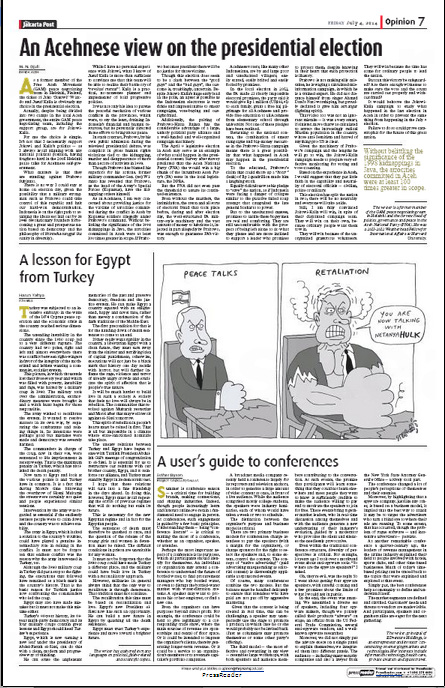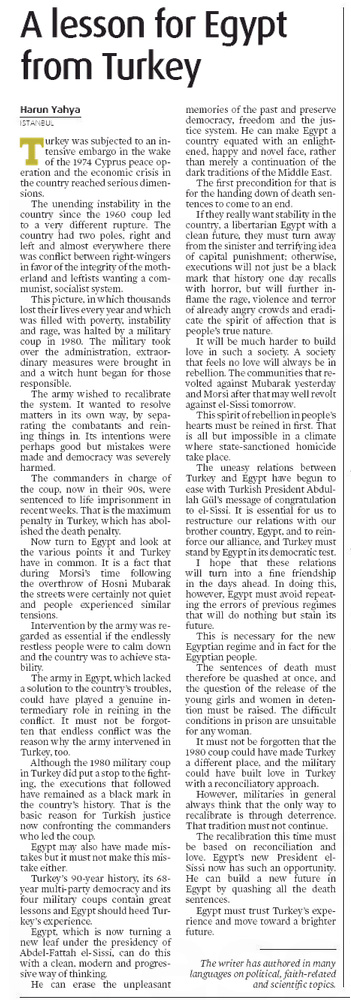
 Turkey was subjected to an intensive embargo in the wake of the 1974 Cyprus peace operation and the economic crisis in the country reached serious dimensions.
Turkey was subjected to an intensive embargo in the wake of the 1974 Cyprus peace operation and the economic crisis in the country reached serious dimensions.
The unending instability in the country since the 1960 coup led to a very different rupture. The
country had two poles, right and left and almost everywhere there was conflict between right-wingers in favor of the integrity of the motherland and leftists wanting a communist, socialist system.
This picture, in which thousands lost their lives every year and which was filled with poverty, instability and rage, was halted by a military coup in 1980. The military took over the administration, extraordinary measures were brought in and a witch hunt began for those responsible.
The army wished to recalibrate the system. It wanted to resolve matters in its own way, by separating the combatants and reining things in. Its intentions were perhaps good but mistakes were made and democracy was severely harmed.
The commanders in charge of the coup, now in their 90s, were sentenced to life imprisonment in recent weeks. That is the maximum penalty in Turkey, which has abolished the death penalty.
Now turn to Egypt and look at the various points it and Turkey have in common. It is a fact that during Morsi’s time following the overthrow of Hosni Mubarak
the streets were certainly not quiet and people experienced similar tensions.
Intervention by the army was regarded as essential if the endlessly restless people were to calm down and the country was to achieve stability.
The army in Egypt, which lacked a solution to the country’s troubles, could have played a genuine intermediary role in reining in the conflict. It must not be forgotten that endless conflict was the reason why the army intervened in Turkey, too.
Although the 1980 military coup in Turkey did put a stop to the fighting, the executions that followed have remained as a black mark in the country’s history. That is the basic reason for Turkish justice now confronting the commanders who led the coup.
Egypt may also have made mistakes but it must not make this mistake either.
Turkey’s 90-year history, its 68-year multi-party democracy and its four military coups contain great lessons and Egypt should heed Turkey’s experience.
Egypt, which is now turning a new leaf under the presidency of Abdel-Fattah el-Sissi, can do this with a clean, modern and progressive way of thinking.
He can erase the unpleasant memories of the past and preserve democracy, freedom and the justice system. He can make Egypt a country equated with an enlightened, happy and novel face, rather than merely a continuation of the dark traditions of the Middle East.
The first precondition for that is for the handing down of death sentences to come to an end.
If they really want stability in the country, a libertarian Egypt with a clean future, they must turn away from the sinister and terrifying idea of capital punishment; otherwise, executions will not just be a black mark that history one day recalls with horror, but will further inflame the rage, violence and terror of already angry crowds and eradicate the spirit of affection that is people’s true nature.
It will be much harder to build love in such a society. A society that feels no love will always be in rebellion. The communities that revolted against Mubarak yesterday and Morsi after that may well revolt against el-Sissi tomorrow.
This spirit of rebellion in people’s hearts must be reined in first. That is all but impossible in a climate where state-sanctioned homicide take place.
The uneasy relations between Turkey and Egypt have begun to ease with Turkish President Abdullah Gül’s message of congratulation to el-Sissi. It is essential for us to restructure our relations with our brother country, Egypt, and to reinforce our alliance, and Turkey must stand by Egypt in its democratic test.
I hope that these relations will turn into a fine friendship in the days ahead. In doing this, however, Egypt must avoid repeating the errors of previous regimes that will do nothing but stain its future.
This is necessary for the new Egyptian regime and in fact for the Egyptian people.
The sentences of death must therefore be quashed at once, and the question of the release of the young girls and women in detention must be raised. The difficult conditions in prison are unsuitable for any woman.
It must not be forgotten that the 1980 coup could have made Turkey a different place, and the military could have built love in Turkey with a reconciliatory approach.
However, militaries in general always think that the only way to recalibrate is through deterrence. That tradition must not continue.
The recalibration this time must be based on reconciliation and love. Egypt’s new President el-Sissi now has such an opportunity. He can build a new future in Egypt by quashing all the death sentences.
Egypt must trust Turkey’s experience and move toward a brighter future.
Adnan Oktar's piece on the Jakarta Post:
http://m.thejakartapost.com/news/2014/07/04/a-lesson-egypt-turkey.html


